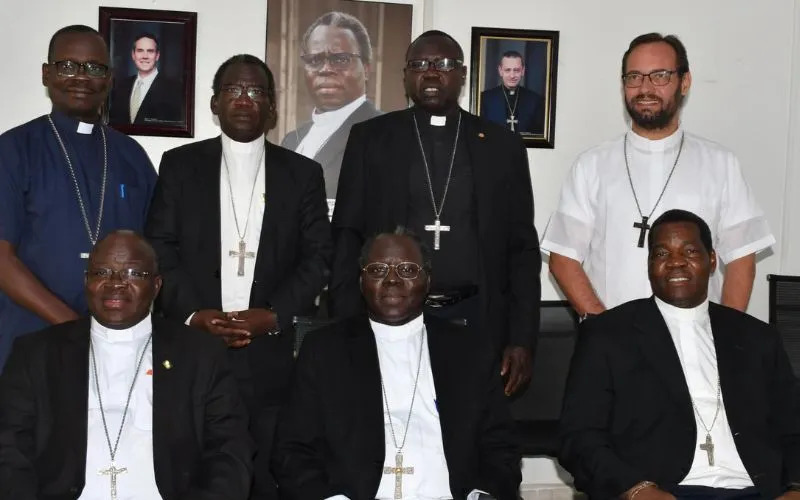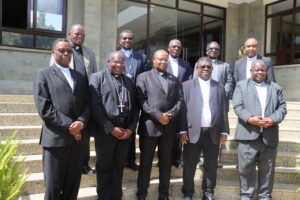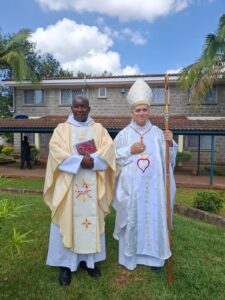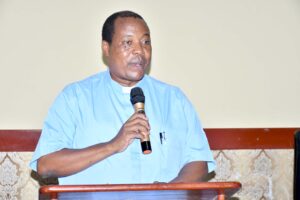SOUTH SUDAN: South Sudan Government Not Prepared for December Elections – Bishops Decry

Members of Sudan and South Sudan Catholic Bishops Conference
Sr. Jecinter Antoinette Okoth, FSSA
As citizens of South Sudan look forward to the upcoming General Elections slated for December 2024, the Sudan and South Sudan Catholic Bishops Conference (SSSCBC) has expressed disappointment with the unpreparedness of the government.
Communicating their concerns in a pastoral message dated Wednesday, June 29, after a three-day meeting in Juba, the bishops pointed out that so many things have not been put in place. Yet, time is limited for the preparations which require a collective effort.
“We are disappointed by the government’s lack of preparation. An election is not a single event, it is a whole process spread over time. This involves many elements including the establishment of an independent electoral commission; demarcation of constituencies; registration of voters, political parties, and candidates; training of electoral officers; civic education; the logistics of voting in our vast land which has poor infrastructure and communications; security; and a peaceful environment conducive to voting,” the bishops shared and said, “Virtually none of this has taken place.”
They lament that due to insecurity and widespread flooding in the country, if the government doesn’t handle the situation well, it will be challenging for all parts of the country to vote freely.
The Church leaders underscore that the forthcoming election is not just an “ordinary routine election,” but part of the Revitalized Agreement on the Resolution of the Conflict in the Republic of South Sudan (R-ARCSS) that was signed in September 2018, between the government and the Transitional Government of National Unity (TGoNU), the main opposition (South Sudanese People’s Liberation Movement/Army-In Opposition – SPLM/A-IO), the South Sudan Opposition Alliance (SSOA), Former Detainees (FD), and Other Opposition Parties (OPP), emphasizing on power sharing.
“This election forms the final step of the agreement, the culmination which takes place only after all the other parts of the R-ARCSS have been fulfilled and which officially ends the mandate of the R-ARCSS,” reads part of the statement signed by the bishops as they continue, “These include the permanent constitution, security sector reform, transitional justice, reconciliation, and other elements. Most of these have not been fulfilled, thus it is difficult to see how the final element can legitimately be implemented without implementing all the others.”
According to the bishops’ message, some parties are advocating for the elections to take place while others are reluctant. In this case, they say, “An exit strategy from this political impasse is the Tumaini Initiative hosted in Kenya by President William Ruto, an extension of the Catholic Rome-based initiative spearheaded by Sant’Egidio, which brings together both signatories and non-signatories of the R-ARCSS to seek a way forward, although some significant parties have declined to participate.”
In the May mediation peace process for South Sudan dubbed ‘Tumaini Initiative,’ the President of Kenya underscored that the “Initiative exemplifies the Pan-African policy of African solutions to African challenges, contributing to the ‘Silencing the Guns in Africa initiative’ and fostering an environment for transformational development in South Sudan, our region, and the entire African continent.”
While supporting the aim of the Tumaini Initiative, the Church leaders in South Sudan urged all parties “to put aside their differences and to work together for the good of the people. Any solution must be based not on sharing power between elites but on constitutionality, good governance, and the rule of law.” At the same time, the government and other parties need to take seriously the negotiations and whatever happens, “they should remain in dialogue and refrain from words and actions which might contribute to violence.”
The Bishops noted further that even though the R-ARCSS has halted large-scale clashes between major armed groups and has provided a welcome breathing space, “it has not addressed the root causes of the conflicts in our nation, which include but are not limited to lack of constitutional government, nepotism, corruption, land disputes, and the failure of good governance and the rule of law.”
“We believe that the nation needs to look beyond the R-ARCSS and elections, to move beyond power struggles between different parties and factions, and to begin a true national dialogue on “the South Sudan we want”, a dialogue which is independent of political and military elites and which listens to all voices, particularly faith communities, civil society, traditional chiefs and elders, women and youth,” they said cautioning that “the military should have no place in government in either Sudan or South Sudan, and thus we warn against quasi-military power-sharing arrangements as anything but a temporary short-term measure leading to a truly civilian government.”


